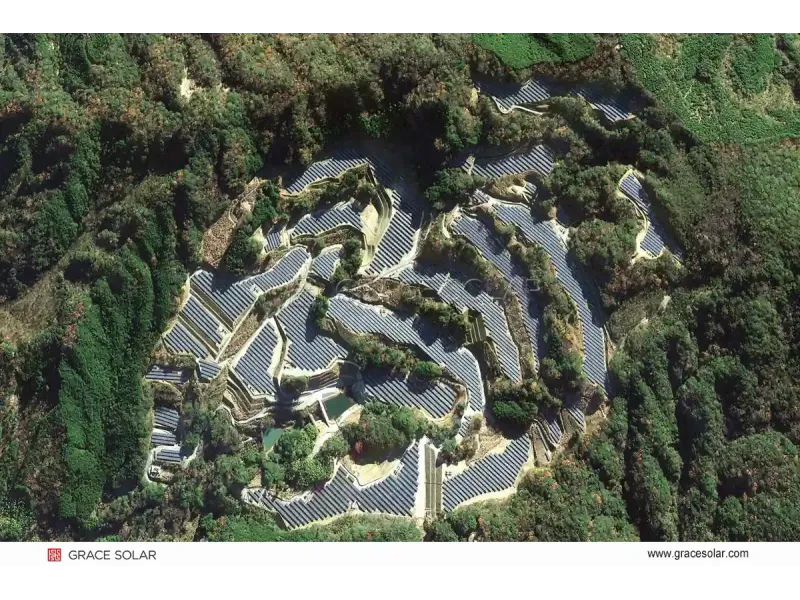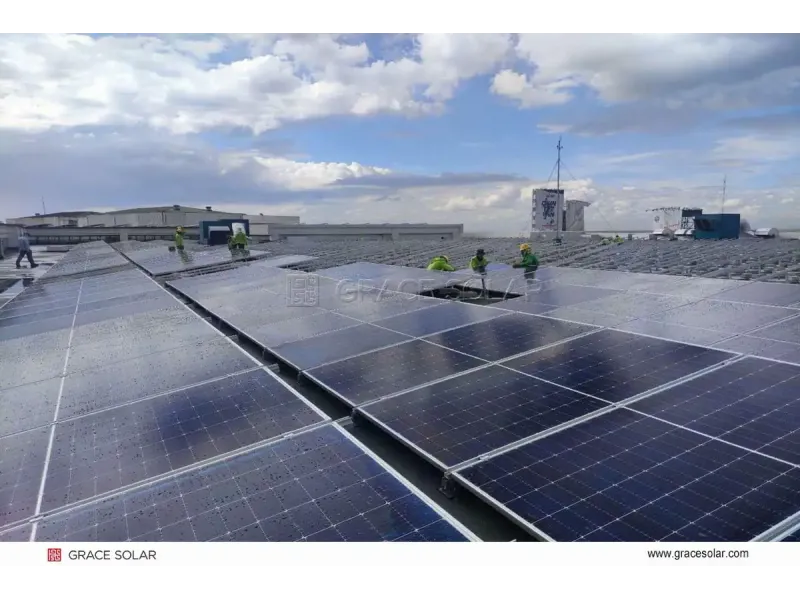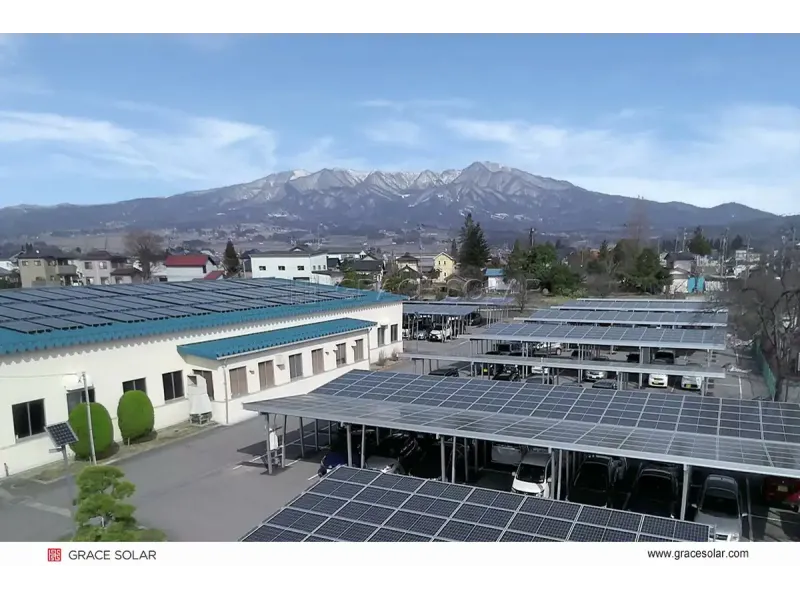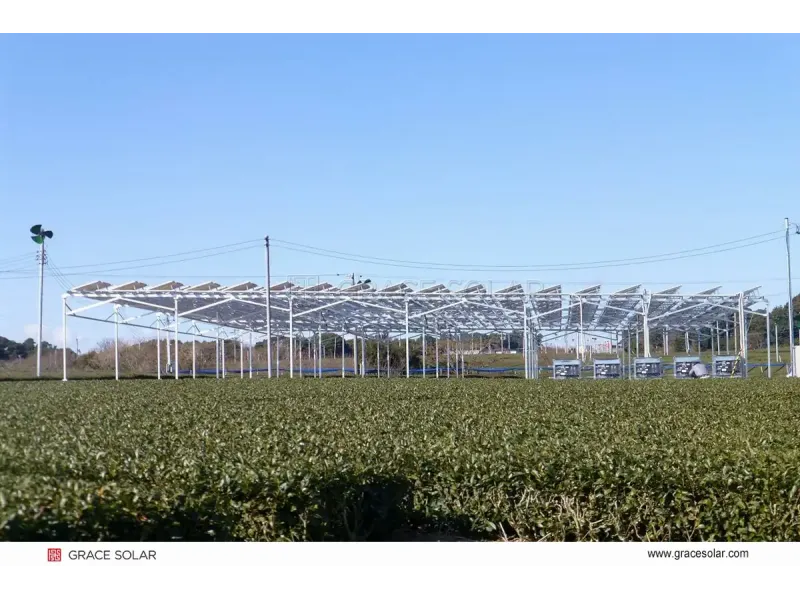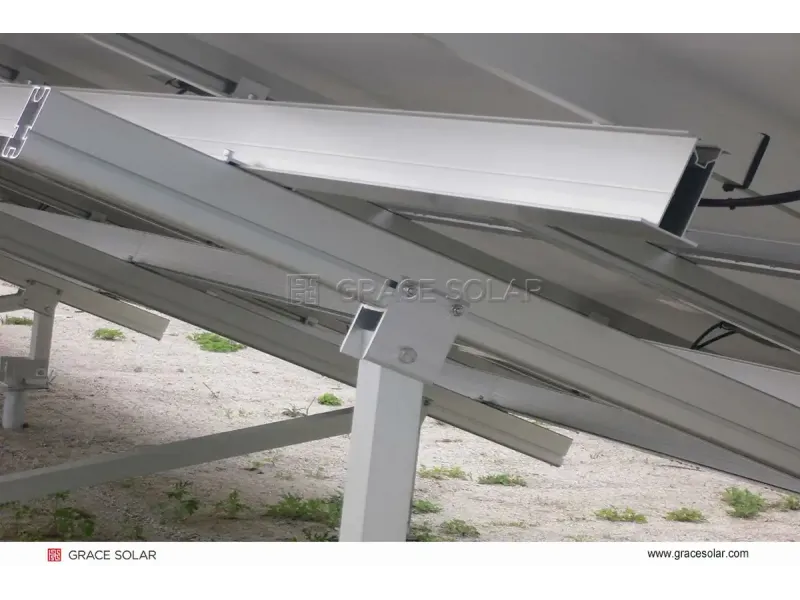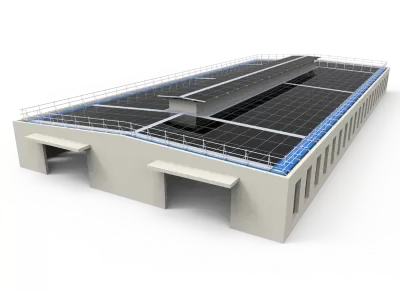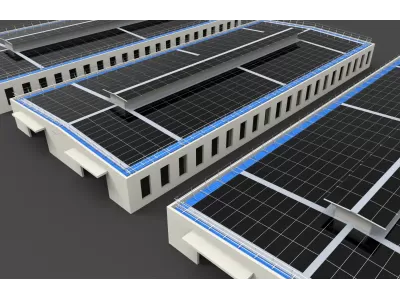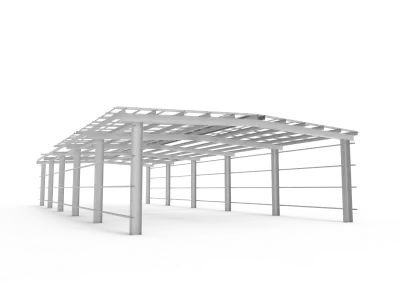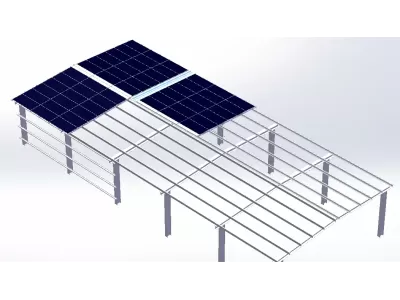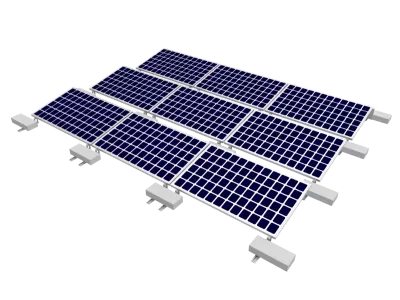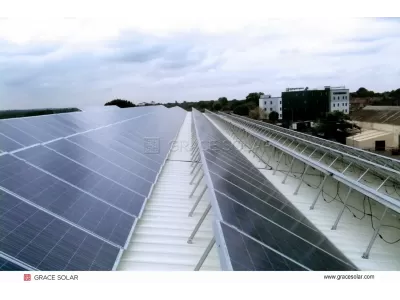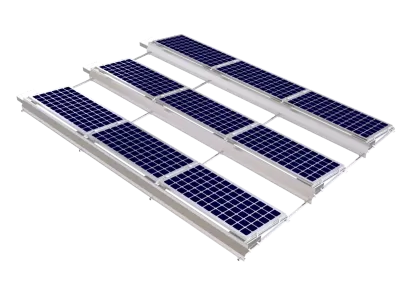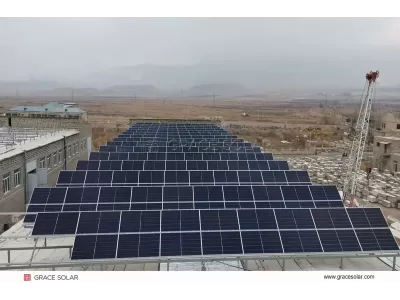![Top 10 Solar Companies in Türkiye [Updated 2025] Top 10 Solar Companies in Türkiye [Updated 2025]](https://www.bymea.com/image/cache/catalog/Blog/Top%2010%20Solar%20Companies%20in%20Türkiye-1200x800.webp)
Turkey's Solar Energy Landscape in 2025: A Comprehensive Overview
Turkey has emerged as one of the most dynamic and promising solar energy markets globally, with exceptional solar resources averaging 2,740 hours of sunshine annually and radiation levels reaching 1,527 kWh/m². By 2025, the country is projected to exceed 18GW of installed solar capacity, representing a compound annual growth rate of 24% since 2020. This remarkable growth is driven by supportive government policies under the HIT-30 initiative, growing energy demand that outpaces domestic production, and Turkey's strategic geographic position bridging European and Asian markets.
The Turkish solar market exhibits a unique blend of local manufacturing champions and international technology leaders, all competing to capitalize on the country's substantial solar potential. With the government's ambitious target of reaching 120GW renewable capacity by 2035 and current solar installations growing at approximately 7-8GW annually, Turkey represents one of the most attractive investment destinations in the global solar industry. The market's particular strength lies in its vertical integration capabilities, with substantial investments in silicon production, cell manufacturing, and module assembly facilities establishing Turkey as a regional solar manufacturing hub.
Comprehensive Analysis: Top 10 Solar Companies in Turkey
1. Kalyon Enerji - The National Champion
As Turkey's undisputed solar powerhouse, Kalyon Enerji operates the country's largest vertically integrated solar manufacturing facility and leads in utility-scale project development. Their monumental 1.35GW solar panel factory in Ankara represents the cornerstone of Turkey's domestic solar manufacturing ambitions, featuring fully automated production lines capable of manufacturing 4,000 panels daily. The facility spans 120,000 square meters and represents an investment exceeding $1 billion, employing advanced PERC and emerging n-type technologies.
Kalyon's project portfolio includes the landmark 1.35GW Karapınar Solar Power Plant, one of the world's largest single-site solar projects, developed through a consortium with international partners. The company maintains strategic partnerships with German technology providers for advanced manufacturing equipment and has secured export contracts across European and Middle Eastern markets. Their integrated approach from raw material processing to completed megawatt-scale installations positions Kalyon as a comprehensive solution provider in the Turkish market.
2. Smart Solar Technology - The Manufacturing Innovator
This emerging manufacturing leader has rapidly expanded its production footprint through government-backed initiatives, positioning itself as a key domestic supplier with advanced technological capabilities. Their vertical integration strategy encompasses the entire value chain from silicon ingot production to completed modules, achieving 87% local content compliance—the highest in the Turkish market. Smart Solar's new production facilities in Izmir's organized industrial zone represent a $750 million investment, featuring robotic automation and AI-powered quality control systems.
The company's technological edge lies in their heterojunction (HJT) cell production line, the first of its kind in Turkey, achieving conversion efficiencies exceeding 24.5%. Their research and development center collaborates with Turkish universities and international research institutions, focusing on next-generation tandem cell technologies. With contracts to supply 2.1GW of modules to domestic projects through 2026 and export agreements with European distributors, Smart Solar has established itself as a technology-driven market leader.
3. Grace Solar - Global Mounting Solutions Leader
International solar mounting specialist Grace Solar has established a formidable presence in the Turkish market through strategic partnerships and technologically advanced mounting solutions. With over 48GW of global installed capacity and ranking among the top 5 in global market share, Grace Solar brings international expertise and proven reliability to Turkey's growing solar sector. The company's substantial manufacturing capabilities include 110,000m² of production facilities, 650 technical staff, and a 2,000m² experimental research center dedicated to mounting system innovation.
The company's single-axis solar tracking systems have been deployed in 14 utility-scale projects across Turkey, demonstrating 28% energy yield improvement compared to fixed-tilt systems. Their GS-Light intelligent tracking system incorporates AI algorithms that optimize panel positioning based on weather predictions and historical data, achieving up to 35% additional energy generation in variable conditions. Grace Solar's ground mount solutions feature innovative foundation designs that reduce steel requirements by 23% while maintaining structural integrity in Turkey's diverse geological conditions.
Through their EPC solutions division, Grace Solar provides comprehensive project support including site assessment, structural engineering, and installation supervision. Their technical team includes 47 engineers with international project experience, ensuring that projects meet both local regulations and international standards. The company's mounting components have obtained Turkish standards certification (TSE) alongside international approvals including UL, TUV, and CE certifications.
Grace Solar's investment in Turkish market development includes establishing a local technical support team of 15 engineers, inventory storage facilities in Istanbul and Izmir, and partnerships with three major Turkish construction companies for large-scale project implementation. Their product range encompasses commercial roof systems for industrial facilities, solar carport solutions for commercial parking areas, and specialized solar farm mounting systems for utility-scale applications.
4. Güneş Enerji - Project Development Pioneer
As one of Turkey's pioneering solar developers, Güneş Enerji has maintained its market position through continued project development excellence and operational expertise. The company manages a diverse portfolio exceeding 870MW of utility-scale and commercial solar installations across Turkey, with particular strength in the Mediterranean and Aegean regions where solar resources are most abundant.
Güneş Enerji's competitive advantage lies in their extensive project development experience, having navigated Turkey's regulatory environment since the early days of solar adoption. They maintain strong relationships with local authorities, land owners, and grid connection offices, enabling faster project permitting and implementation. Their operational portfolio demonstrates consistently high capacity factors exceeding regional averages, attributed to meticulous site selection and optimized system designs.
5. SolEnergy - International Expansion Leader
SolEnergy has successfully expanded beyond its domestic roots to become an international player while maintaining strong operations in Turkey. The company specializes in large-scale project development and has formed strategic partnerships with European investment funds, leveraging Turkey's attractive solar incentives to secure international financing.
Their business model focuses on developing projects to the ready-to-build stage before partnering with international investors for construction and long-term operation. This approach has enabled SolEnergy to develop over 1.2GW of solar projects across Turkey while maintaining capital efficiency. Their international division has replicated this model in Balkan markets, establishing SolEnergy as a regional developer with Turkish roots.
6. Akfen Renewable Energy - Diversified Power Producer
As part of the diversified Akfen Holding, Akfen Renewable Energy has developed numerous solar projects alongside its wind and hydro assets, creating a balanced renewable portfolio. Their integrated approach to renewable development combines strong financial backing from the parent company with technical expertise gained through operating diverse power generation assets.
Akfen's solar portfolio includes 34 projects totaling 647MW capacity, featuring both utility-scale installations and distributed generation facilities. Their strategic focus involves co-locating solar with existing wind farms, optimizing grid connection infrastructure, and creating hybrid renewable parks that deliver more consistent power output. This approach has attracted partnership interest from European utilities seeking diversified renewable investments.
7. Chint New Energy - Chinese Technology Transfer
The Turkish subsidiary of Chinese solar manufacturer Chint has established significant production capacity in Turkey, leveraging the country's manufacturing incentives and export advantages. Their $380 million investment in TOPCon cell production facility represents the largest Chinese solar manufacturing investment in Turkey, with technology transfer from Chint's global research centers.
The facility's initial 1.2GW capacity supplies both domestic projects and export markets, with advanced n-type TOPCon technology achieving 25.2% conversion efficiency. Chint's vertical integration strategy includes local sourcing of aluminum for frames and glass from Turkish manufacturers, achieving 74% local content compliance. Their export strategy focuses on European markets where Turkish-made products avoid anti-dumping duties, providing cost advantages over direct Chinese imports.
8. Schmid Pekintaş Energy - European Technology Excellence
This German-Turkish joint venture represents advanced European technology transfer into the Turkish market. The company combines German engineering precision with local manufacturing capabilities to produce high-efficiency solar modules meeting the most stringent European quality standards.
Schmid Pekintaş's technological advantage stems from their proprietary cell interconnection technology that reduces efficiency losses from cell-to-module processes. Their production equipment incorporates Industry 4.0 principles with IoT connectivity and real-time quality monitoring, achieving defect rates below 0.3%. The company supplies premium modules to European residential and commercial markets where brand reputation and quality certifications command price premiums.
9. Junda-Schmid Partnership - Advanced Cell Technology
The collaborative venture between Chinese solar specialist Junda and German technology company Schmid has brought advanced n-type cell technology to Turkey through a $520 million investment. Their planned 5GW capacity represents one of the largest foreign investments in Turkish solar manufacturing, focusing exclusively on high-efficiency cell production.
The partnership combines Junda's mass production expertise with Schmid's advanced equipment manufacturing capabilities, creating a technology transfer model that has accelerated Turkish cell manufacturing sophistication. Their facility features the first implementation of copper plating technology in Turkey, replacing traditional silver paste and reducing production costs while improving efficiency. The partnership supplies cells to multiple Turkish module manufacturers, reducing dependency on Asian cell imports.
10. Astronergy Turkey (Chint Group) - Export-Focused Manufacturing
As another strategic Chinese investment in the Turkish solar sector, Astronergy has established module production capacity targeting both domestic demand and European exports. Their presence reinforces Turkey's role as a manufacturing bridge between Asia and Europe, leveraging Turkish trade agreements with EU markets.
Astronergy's manufacturing facility emphasizes flexible production lines capable of producing multiple module types and sizes, allowing rapid response to changing market demands. Their product range includes full-black modules for residential markets, dual-glass modules for harsh environments, and large-format modules for utility-scale applications. The company's export ratio exceeds 75%, with primary markets in Germany, Italy, and the Netherlands where product aesthetics and performance specifications align with local preferences.
Market Trends & Strategic Analysis
Turkey's solar market is characterized by several key trends that will shape competition and investment decisions through 2025 and beyond:
Local Content Requirements & Manufacturing Expansion
Government policies mandating 70% local content for solar projects receiving incentives have driven massive manufacturing investment across the value chain. Companies like Grace Solar that offer locally compliant mounting systems and components have gained significant competitive advantage in utility-scale tenders. The local content policy has successfully stimulated $6.2 billion in manufacturing investments since 2022, creating approximately 24,000 jobs in solar manufacturing.
The policy's impact extends beyond module assembly to include inverters, mounting structures, and balance of system components. Turkish manufacturers now supply 83% of domestic market demand for solar panels, compared to just 37% in 2020. This rapid localization has positioned Turkey as a net exporter of solar products, with exports growing 214% since 2022 to reach $1.8 billion annually.
Export Hub Strategy & European Market Access
Turkey's customs union with Europe makes it an ideal manufacturing base for exporting to EU markets without anti-dumping duties that apply to direct Chinese imports. International companies are establishing production facilities to benefit from both lower production costs compared to Europe and preferential market access. The export advantage typically ranges from 28-42% compared to direct Chinese imports when accounting for tariffs, shipping costs, and delivery times.
Turkish manufacturers have particularly gained market share in Southern European markets where logistics advantages provide faster delivery times and lower transportation costs. The export strategy has evolved from simple module shipments to complete system exports including solar tracking systems and mounting solutions, with Turkish engineering firms providing design and consultancy services for international projects.
Technology Innovation & Efficiency Competition
Advanced technologies are gaining rapid traction in Turkish utility-scale projects, driven by competition for limited grid connection capacities and the need to maximize energy yield per hectare. Bifacial modules with single-axis tracking systems now represent 67% of new utility-scale installations, delivering 12-18% additional energy yield compared to fixed-tilt systems.
Companies that offer technological differentiation, such as Grace Solar's dual-axis trackers for high-altitude locations, are positioned for premium market segments. The technology competition has expanded to include digitalization features such as IoT connectivity, predictive maintenance algorithms, and AI-powered optimization systems that enhance operational efficiency and reduce maintenance costs.
Vertical Integration & Supply Chain Security
Leading Turkish solar companies are pursuing vertical integration strategies to secure supply chain stability and capture margin across multiple value chain segments. This trend ranges from silicon production investments to module manufacturing and project development, creating diversified business models that mitigate sector-specific risks.
The vertical integration movement has been particularly pronounced among companies with existing interests in construction, energy infrastructure, or industrial manufacturing. These companies leverage their existing capabilities in steel production, aluminum extrusion, and electrical engineering to expand into solar manufacturing and project development, creating synergies that reduce costs and improve competitiveness.
Future Outlook: Turkish Solar Market 2025-2030
Turkey's solar market is positioned for sustained growth through 2025 and beyond, driven by multiple structural factors that create a favorable investment environment:
Energy Security Imperatives: Turkey's dependence on imported natural gas (accounting for 42% of power generation) creates strong incentives for domestic solar development. The geopolitical premium on energy security has elevated solar development to a strategic national priority, ensuring continued policy support and investment incentives.
Economic Competitiveness: Solar power has achieved grid parity across most of Turkey, with levelized costs of electricity (LCOE) ranging from $0.048-0.062/kWh compared to natural gas power costs of $0.089-0.112/kWh. This cost advantage continues to widen as solar technology costs decline and natural gas prices remain volatile.
Manufacturing Expansion: Current investments will increase Turkish solar module production capacity from 44.5GW to 68GW by 2026, establishing Turkey as the largest solar manufacturing hub outside of China. This manufacturing scale will further reduce costs and strengthen the export competitiveness of Turkish solar products.
Technology Diversification: The market will see increased adoption of specialized mounting solutions including solar carport systems for commercial parking areas, commercial roof solutions for industrial facilities, and floating solar systems for hydroelectric dam reservoirs. Building-integrated photovoltaics (BIPV) will gain traction in urban development projects, particularly in major metropolitan areas.
International Partnerships: Turkish companies will increasingly form strategic partnerships with international technology providers and investors, accelerating technology transfer and bringing additional capital to the market. These partnerships will particularly focus on energy storage integration, smart grid technologies, and digital operation platforms.
Conclusion: Strategic Positioning for Market Success
The companies listed above represent the most dynamic and capable players in Turkey's rapidly evolving solar market. Turkish leaders like Kalyon Enerji and Smart Solar Technology continue to expand their international presence while maintaining domestic market leadership. Global players like Grace Solar strengthen their local presence through technology transfer, strategic partnerships, and tailored solutions for the Turkish market.
The coming years will see increased competition as manufacturing capacity expands and technology adoption accelerates. Companies that successfully balance local content requirements with international technology standards, develop strong partnerships across the value chain, and maintain flexibility to adapt to market changes will emerge as the long-term leaders in Turkey's solar industry.
For international companies considering market entry, partnerships with established Turkish players like Grace Solar that offer proven EPC capabilities and local market knowledge provide the most effective pathway to success. The Turkish solar market presents substantial opportunities for companies that can navigate its unique characteristics while delivering international standards of quality and performance.

